Mabel Mathilda makes everything better.
Listen, if we have to spend time in the present with the Bennett siblings, it works best when we get more exciting aspects, such as the two meeting their biological sister for the first time or Byron’s relatable candor with a dash of Benny not being as annoying as usual.
And thankfully, Black Cake Season 1 Episode 6 delivered on that.
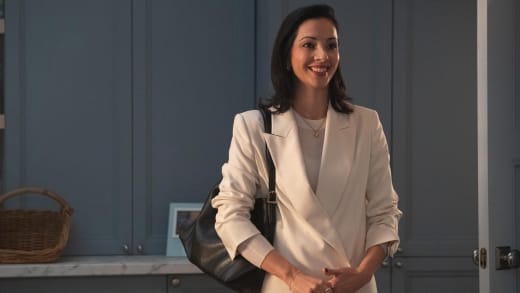
It doesn’t hurt that we got a dash of Covey and saw how flawed and short-sighted she was as a best friend.
Covey’s complexities make this story compelling, so any opportunity to revisit her is always welcomed. And did we mention that Mia Isaac is magic? Yeah, we did, but let’s repeat it anyway.
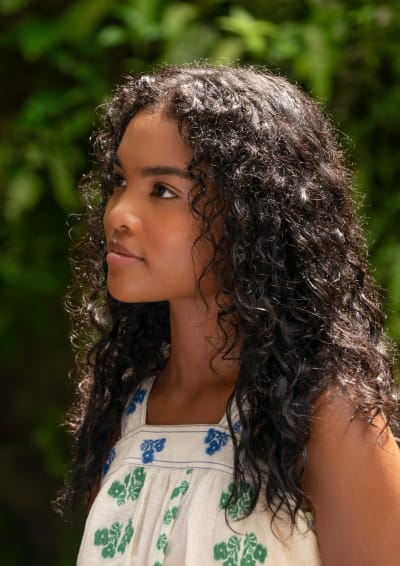
On the flashback front, we glimpse some of the tension between Covey and Bunny as best friends because of Covey’s attempt to “protect” Bunny from her homosexuality.
Times were different, and as Eleanor Bennett recounted these days, you could genuinely hear the remorse in her voice as she longed for a time when she could’ve done right by her best friend and even saw how it manifested itself yet again with her relationship with Benny.
All Covey thought about back then was that Bunny’s sexuality was controversial and could bring harm to her as something not widely accepted and that she didn’t want anything bad to happen to her best friend.
Covey thought she was helping Bunny, but pushing someone to suppress who they really are isn’t of help, and it was heartbreaking to see what this did to Bunny.
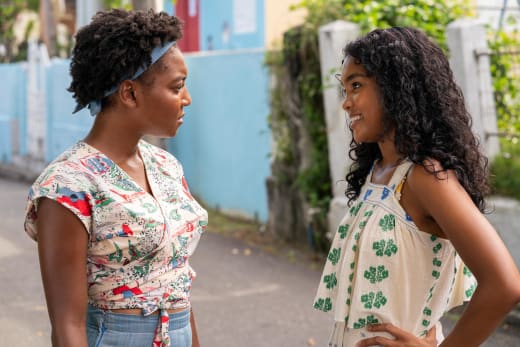
The extra layer to her experience was that she was in love with Covey. It was difficult enough for Bunny to see Covey so head over heels in love with Gibbs and Covey’s often insensitivity regarding bringing Gibbs along when she was supposed to be spending time with Bunny.
But then Covey was encouraging double dates and essentially trying to teach Bunny how to be around men, perhaps in some misguided attempt at hoping that if Bunny felt more comfortable around boys, she’d eventually fall in love with one and be happy.
Black Cake Season 1 Episode 5 Review: Mother
Covey didn’t seem to grasp that sexuality doesn’t work that way or even fully comprehend how difficult it was for Bunny to be in love with a best friend who didn’t feel the same way but also worked so hard to erase this part of her.
The complexities of Covey and Bunny’s friendship and sisterhood are some of the more fascinating aspects of this series, and it’s almost a shame that we couldn’t spend a significant amount of time with that alone.
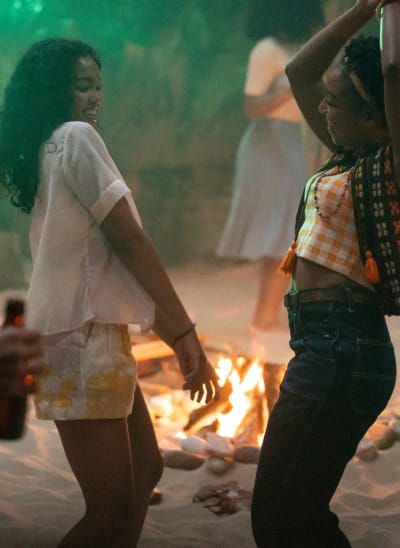
It’s such a rich story to tell and something not explored frequently.
How often do you get authentic and detailed stories that explore someone in Bunny’s position, trying to navigate her sexuality during a time and in a place that wasn’t welcome while also managing these feelings she has for her best friend who could never love her back in the same way?
It’s also a less common story to explore being the object of one’s feelings and love but not feeling the same way and still trying to sustain the friendship regardless.
In many ways, Covey Lyncook had this power over Bunny that, while she didn’t ask for it, she needed to wield carefully, and sadly, one of her last regrets is that she didn’t.
It’s a tricky thing to manage, and as someone who has been in Covey’s place in that regard, I can sympathize with trying to navigate a friendship with the knowledge that this person has feelings for you.
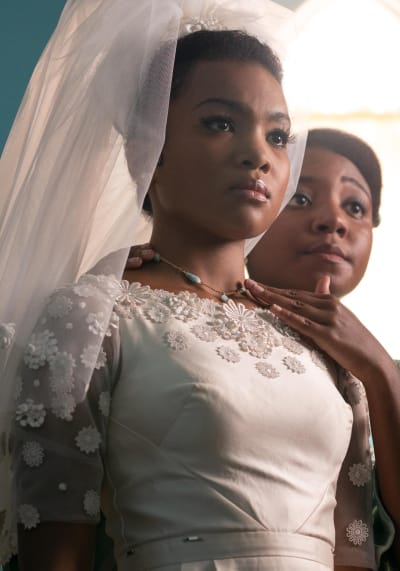
Nevertheless, Covey didn’t go about things the best way, and she wasn’t sensitive to Bunny’s feelings, which was challenging to witness.
It was especially disheartening when we could see Bunny dissociating as she went through the motions, dancing with a guy she didn’t like and even losing her virginity.
One can only imagine how life went for Bunny after Covey left. By then, she had to fully give into hiding, suppressing who she really was and settling into the life expected of her instead of breaking the free the way they had always planned.
I can genuinely appreciate how Eleanor had these epiphanies late in life, as she was dying, and could make the parallels to her strained relationship with Benny.
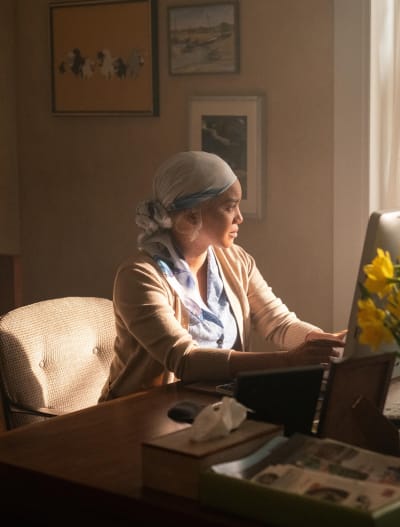
Yet, where I take issue is how the series opted to address the homophobia that Benny faced by her parents. Like race, we know that microaggressions can apply to sexuality as well.
The problem is that Bert and, by extension, Eleanor’s discomfort, shock, or whatever else there was to Benny Bennett’s sexuality was largely severely overshadowed by the family dispute about them not understanding her career choices and why they had to keep funding her latest passion.
It’s not to say that there weren’t some subtle issues with them coming to grips with having a proud, out, and loud queer daughter, but their acceptance of their daughter never felt as if it was something that warranted Benny to take off for eight years and not speak to them again.
The primary issue was her parents not supporting her dreams and aspirations as an artist who didn’t want to become a doctor or lawyer.
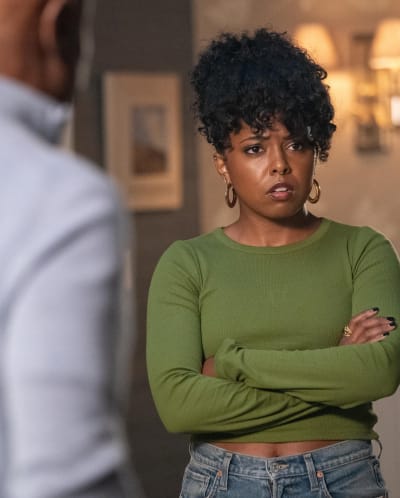
It’s also a difficult thing to credit Benny for this huge stand she took against her family when she followed that by getting entrapped in this abusive relationship with a horrible man like Steve, who really and actually didn’t accept who she was and belittled, demeaned, and didn’t accept her.
I wish Benny’s story were stronger or at least half as compelling as Bunny’s so that the parallels drawn between them by Eleanor/Covey felt more impactful.
Essentially, the only thing that connects Benny and Bunny is the mere fact that they’re two queer Black women, and Eleanor/Covey loved them.
But if these are the types of connections that Benny needed to have some growth and be less annoying, then so be it.
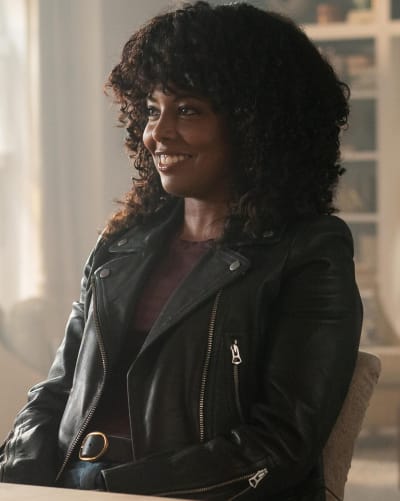
Byron Bennett’s storyline was a mixed bag again, as well.
The problem with Black Cake’s approach to telling some of these vital aspects of the Black experience across the diaspora isn’t that they’re opting to tell them, as it’s incredibly important that they do.
No, the problem with how they approach some of their storylines is that most of them feel so rooted in trauma and pain with little else — little balance, nuance, or creativity in approach.
Covey and Gibbs’ love story is central to this entire series, yet it barely feels as if it got its due in screen time and real presence, and thus, the beauty in their love isn’t balancing out against all the pain and hardships that Covey has faced.
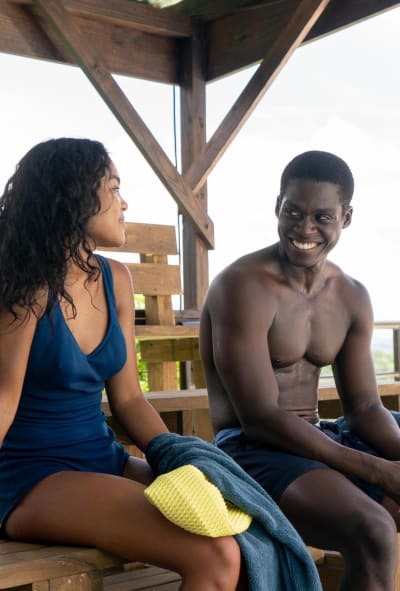
The sweet, beautiful, happy, good moments aren’t equally weighted or just significantly weighted against the heavier, harder things, making the Bennett story feel like you’re sometimes getting weighed down.
It’s also an issue where the series hints and nods at these issues and moments instead of diving fully into them. Like Byron at his job, covering some of these Black issues feels like tokenism or box-ticking.
The world can be a scary place for Black boys.
Eleanor
The entire situation with Byron’s arrest by the installment’s end didn’t feel like anything other than trauma porn and some obligatory reference to Black men’s fucked up experience with the criminal and legal system.
Byron got hauled into jail, processed, booked, and tossed into a cell with a bunch of other Black men in a slow montage meant to evoke feelings.
Byron did the customary Black head nod to a random guy in a nearby cell, and then he was pulled out the next day because of some handshakes and Simon dropping charges.
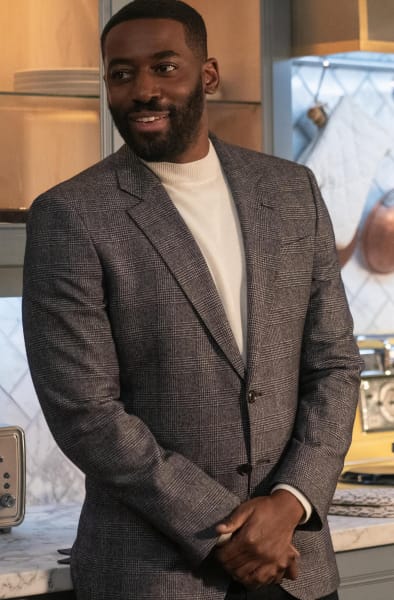
Maybe there is something larger to be said about how the only thing preventing Byron’s life from being permanently ruined from an aggravated assault caught on camera was Simon, the white dude, dropping all charges.
Thus, Byron was at the mercy of a white man, but I can’t even say that he was executed well enough.
Byron did assault Simon in front of witnesses because of his actions against Benny six years ago. As much as Simon deserves every inch of an ass-whooping, whatever point they wanted to make doesn’t hit the same with this specific instance.
Related: Black Cake Season 1 Episode 4 Review: Mrs. Bennett
The hour tried to tie it into Byron’s silent rage as a professional Black man who spent his entire life trying to navigate predominately White spaces under the burden of respectability placed upon him by his parents.
Eleanor and Bert had to remind him that he couldn’t operate the world like everyone else and hammered him that he could only be safely himself in their own home.
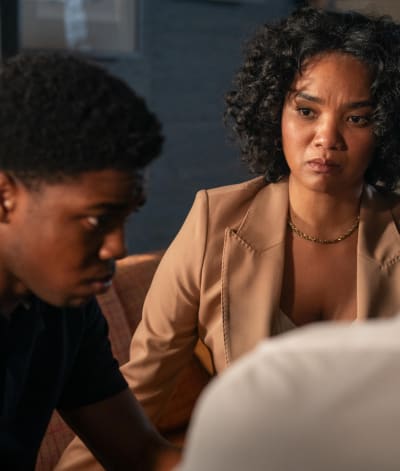
You’d be hard-pressed to find many Black or even other People of Color who haven’t had these types of chats and had to learn these lessons.
But Byron’s story, in general, has felt so weak and not monopolized much time, so while relatable in some capacity, it just sits there.
However, one of his most shining moments of the series was his candor during the Diversity panel. It’s one of the few times when the series addresses Byron’s predicament authentically and in a manner that evokes the intended feelings.
It was one of the times I genuinely related to Byron the most, as he sat on a Diversity panel about diversity in STEM as the ONLY minority.
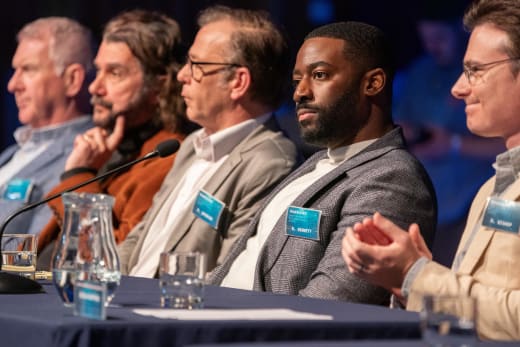
The hypocrisy of Byron standing out on a panel devoted to diversity when all the other panelists were white males was so hysterically on point it elicited a giggle.
Byron’s company could trot him out as their token Black guy, who doesn’t make any waves at that, for these unique conversations, but they don’t have any regard or respect for his contributions outside of that.
I’m tired of doing these panels, but I’m obligated to do them because I’m the only one who can. For a long time, I pretended to be fine with it; honestly, it makes me angry, and I’m learning to listen to that anger because it tells you that even though all of these people are smiling in your face, something is very wrong here… that anger you have to use it, right? But use it for good.
Byron
It’s painfully on brand and standard; professionals of color, regardless of their area of expertise, often lament this idea that they can only be consulted or essential when it comes to topics regarding race, gender, sexuality, or specifically identity and nothing else.
Byron couldn’t just speak about the freaking ocean, no, just what the field is like for him as a Black man in this area of study.
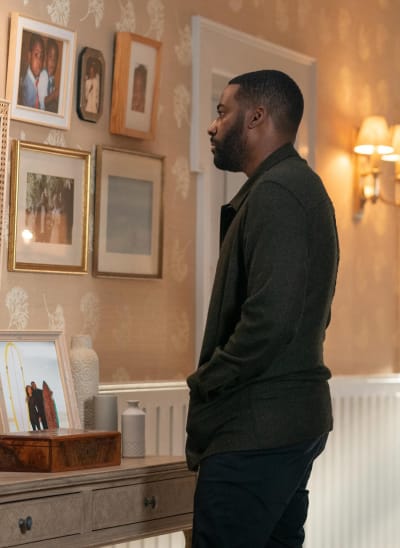
Anyone who has ever been in the “token” category could most certainly relate to the absurdity of that diversity panel. Byron was at his most relatable, cutting the shit and being honest about it all.
His candor was Byron at his most relatable, and it’s a shame it took this long into the season to feel that way for the character.
The discomfort his colleague, the other panelists, and the host experienced as he honestly answered a question was genuinely amusing.
And their efforts to steamroll past his answer shut him up, and slide the microphone away amid his response was noticeable.
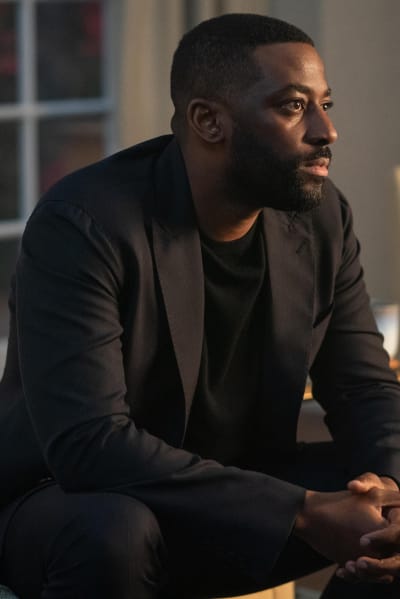
If they were uncomfortable hearing about Byron’s daily discomfort as a Black man navigating a professional life full of microaggressions, why can’t they imagine or sympathize with his discomfort?
Byron going viral for his candor, finally breaking free of the suppression he carried with him since he was a teen, and actually getting applauded for it was ironic given Mabel’s reasoning for going viral.
Related: Found Review: Tell Me You Love Me
The hour delivered on Mabel and the Bennett siblings meeting for the first time.
From the second that black SUV hovered near the house, it was apparent that Mabel had crossed the pond seeking answers, and boy, did she find them.
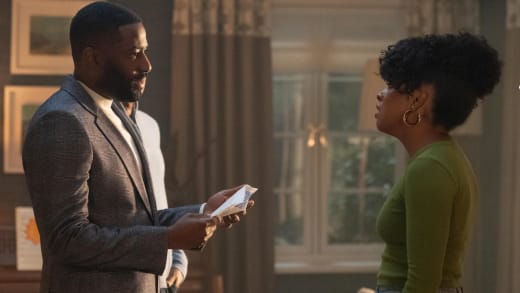
It’s still fascinating how Mabel has been the sibling with the more compelling angle to explore and how the series has managed to do a decent job covering it in such a short period.
You could sense her hesitancy when she came face to face with both of her siblings, and she approached every aspect of her trip with caution.
She felt pulled to California to learn more about herself and feared what she might discover.
It’s difficult for her to come to grips with her entire identity shifting overnight, and it’s been a great angle to delve into.

Regardless of what each of the Bennett siblings felt about their mother passing and all the secrets that almost got buried with her, it simply doesn’t compare to Mabel’s experience.
And what’s worse is that she’s getting bombarded with all of these things smack dab in the middle of the experience for the Bennetts, and a new stage of what they must learn depends on Mabel being up for everything.
My whole world has shifted, my identity, and I haven’t even begun to look back at myself to wonder how didn’t I know, what did I miss?And I’m not ready to do that right now, and I’m afraid of what learning about my birth father would mean, not just to me, but to my parents, and to my son.
Mabel
It’s unfair not to give Mabel any time to process everything that got dumped on her properly, and I appreciate that she was polite but firm and vocal about that.
Mabel even had a great way of cutting right into Benny’s penchant for making everything about herself and cutting to the point that regardless of how Benny feels, Mabel has her own things to reconcile with here.
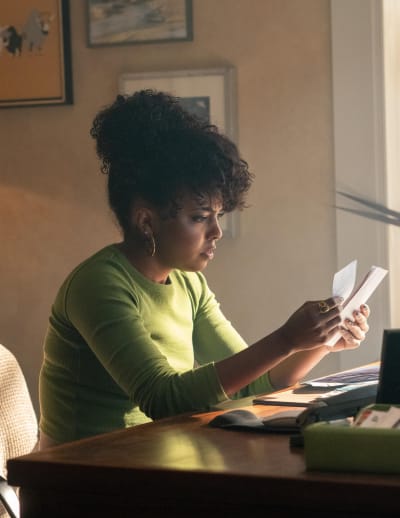
Mabel entering the childhood home she was never part of to see pictures of this family she never knew existed deeply affected her, and you could see it all over her face.
But the moment she faced how she came into the world, she shut down, and understandably so.
Related: The Walking Dead The Ones Who Live WIll Either Help or Hinder the Franchise
She had enough on her plate as it was, but to learn that she was a product of violence, of rape is a lot for anyone to make sense of, and the way that interconnects with her burgeoning identity issues as a biracial woman enhances that even further.
It’s not the story that Mabel came there to find out. But as valid as Mabel’s feelings were, I was happy that Benny understood where she was coming from and sought her out.
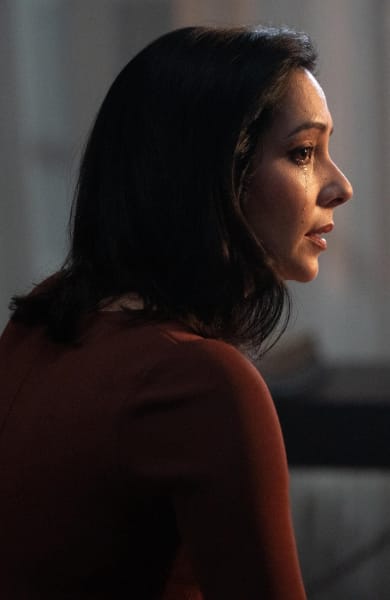
For Benny, you sense that she feels as if she may have found a kindred spirit, someone in their family who may get her when she spent much of her life feeling like an outsider. And she’s jumped onto that despite her initial reluctance.
The women bonding over food and delving into that deeper discussion was nice. Benny was pushy, but for once, not in an offputting manner.
Related: Alert MPU and The Cleaning Lady Sets Fox Premiere Date
Benny pressed Mabel about Gio’s father and whatever dark history there is, and I’d love for them to reveal that so we can likely draw the parallels between how displaced Mabel has felt and how her son may feel.
Mabel expressed a bit of her frustration that she should’ve realized something, and there’s so much for her to process at once that she hasn’t given herself the space to do any of that.
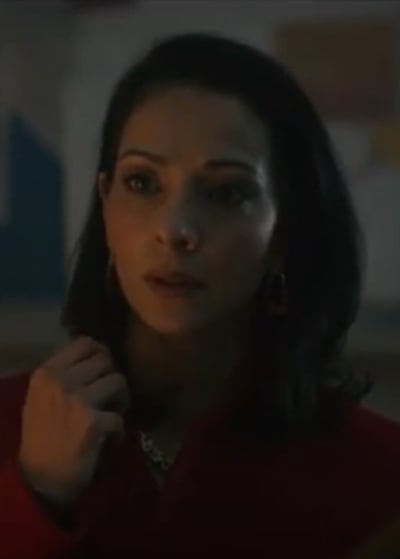
Benny joking about Mabel getting to clap back at everyone about the Karen moment now that she can state she’s Black and Chinese was amusing.
But what’s comforting is knowing that Mabel returned and heard Eleanor’s voice and words, which likely put her at ease about her biggest fears since learning all this.
Benny: You are actually Black and Chinese, so you can tell them to fuck off now. Mabel: Yes, I suppose I can. It hasn’t really sunk in yet.
Mabel had to have wondered how her biological mother gave her up and then went on to have a happy family later. It would only be natural for her to harbor feelings about that.
And then, learning that she was a product of rape upended her world again and likely had her feeling as if Eleanor didn’t want her at all because of how she was conceived.
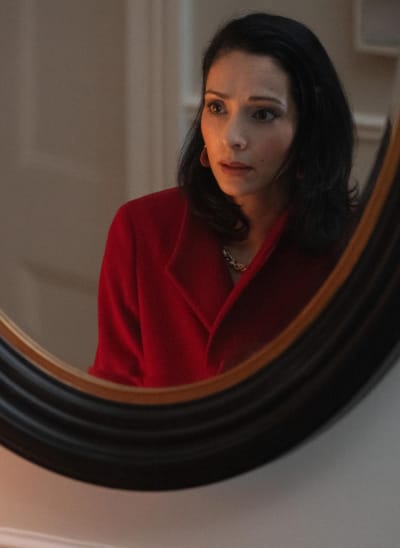
Instead, we learn that Eleanor fell in love with Mabel the second she saw her and wanted her, but Mabel was taken from her.
It’s a heck of a cliffhanger to leave things on, and now we have to learn the real story behind how Mabel came into this world and why she never ended up with Eleanor.
But if there is ever a sign of how much Eleanor loved this child, it’s knowing that she named Mabel after her own mother.
Over to you, Black Cake Fanatics. Did you love Mabel and the Bennetts meeting? What did you think of that cliffhanger? Hit the comments!
Black Cake airs on Wednesdays on Hulu!
Edit Delete
Jasmine Blu is a senior staff writer for TV Fanatic. She is an insomniac who spends late nights and early mornings binge-watching way too many shows and binge-drinking way too much tea. Her eclectic taste makes her an unpredictable viewer with an appreciation for complex characters, diverse representation, dynamic duos, compelling stories, and guilty pleasures. You’ll definitely find her obsessively live-tweeting, waxing poetic, and chatting up fellow Fanatics and readers. Follow her on X.


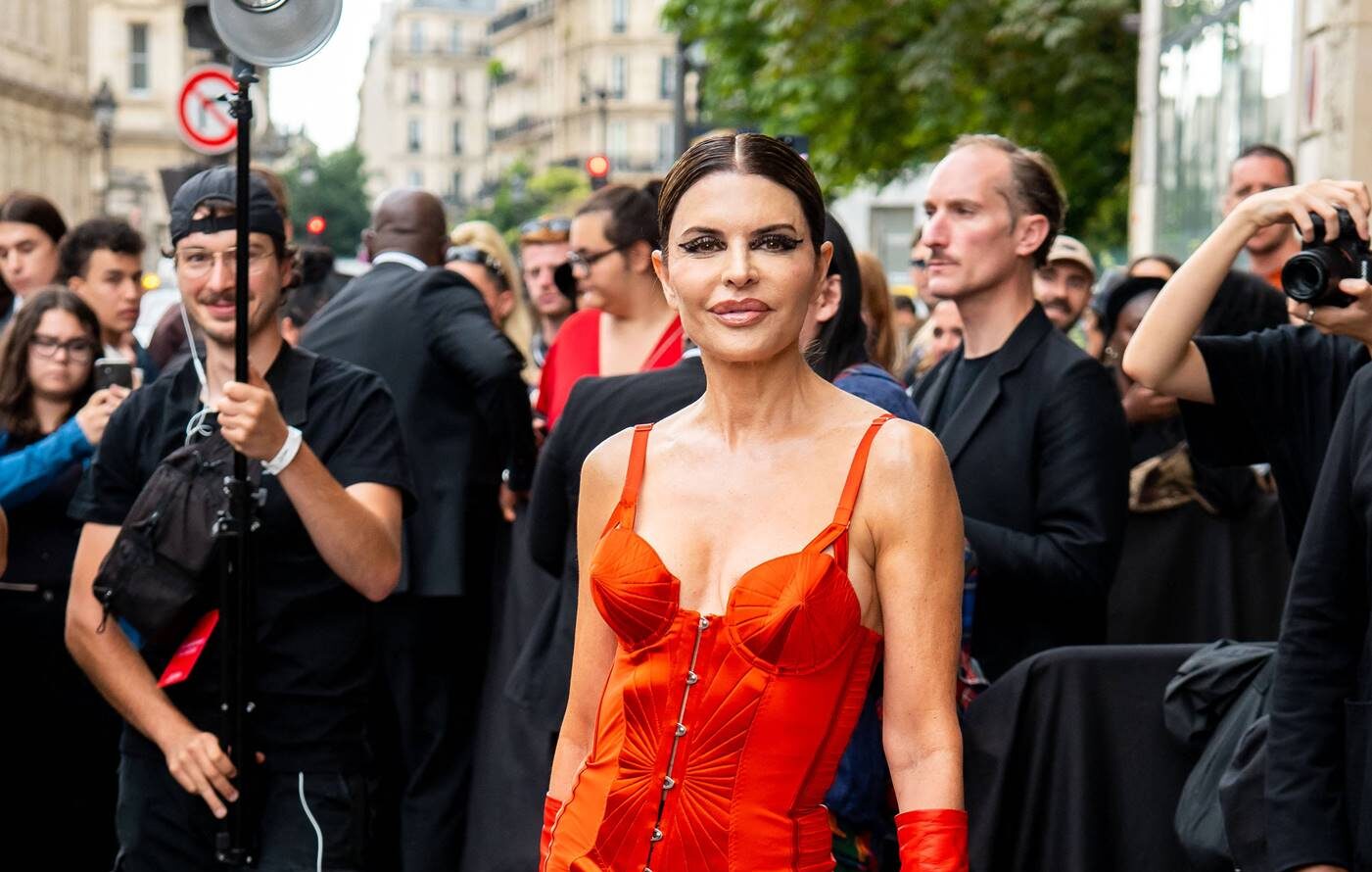
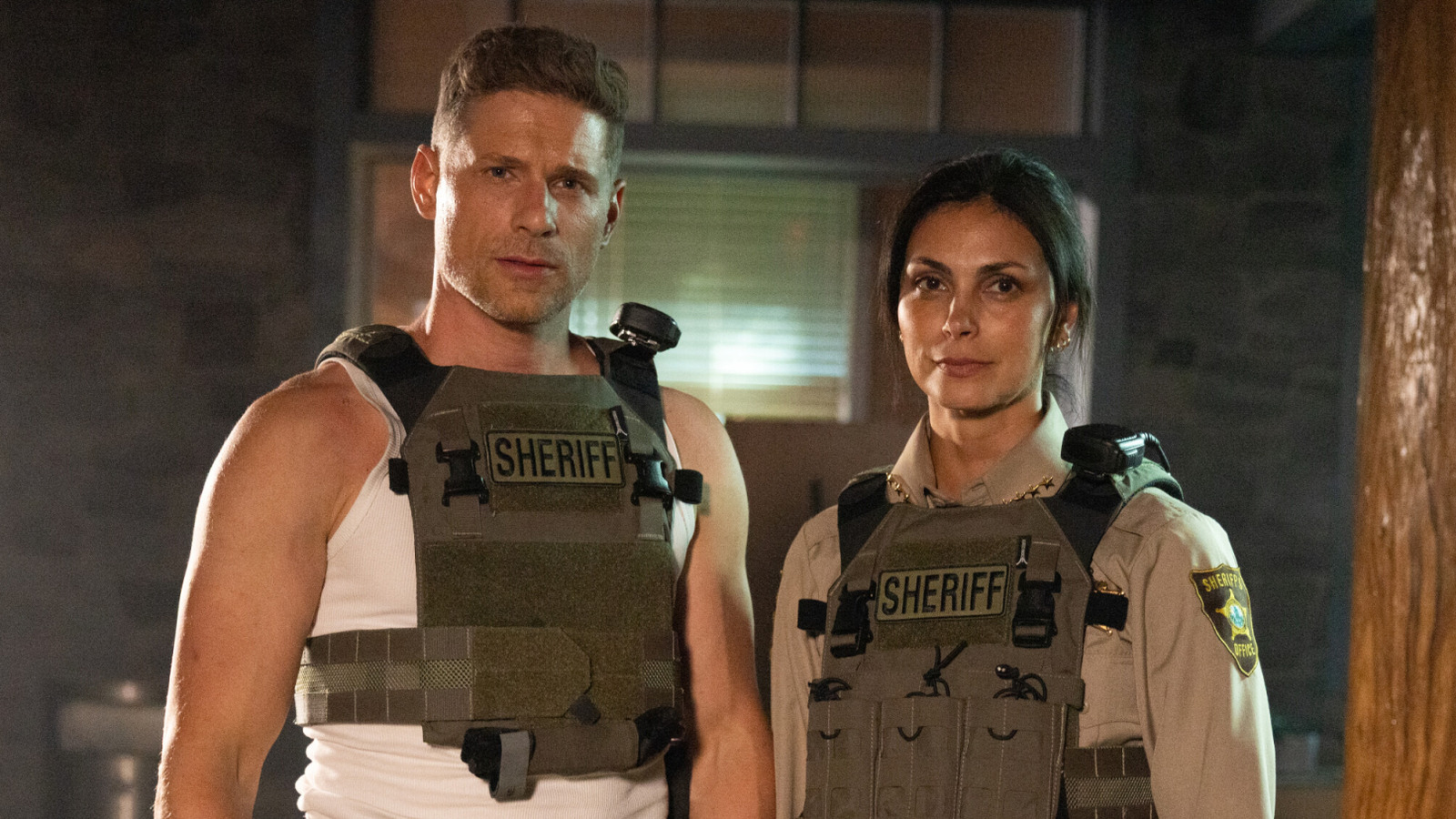

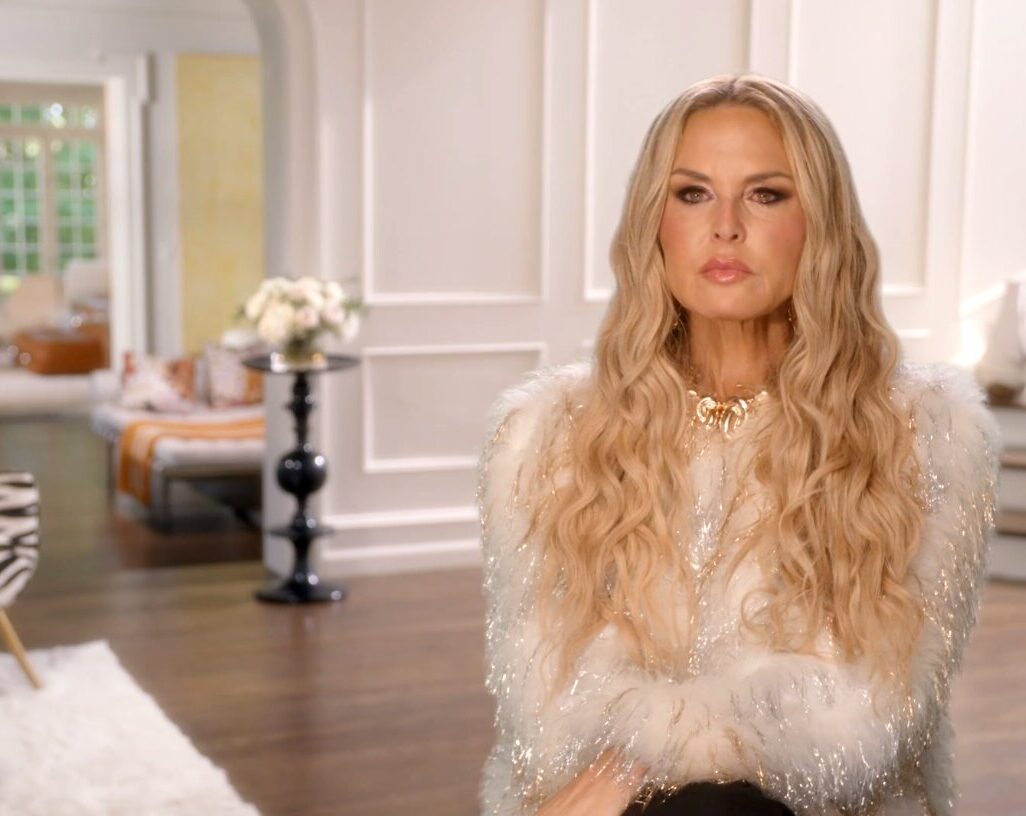
.png)
